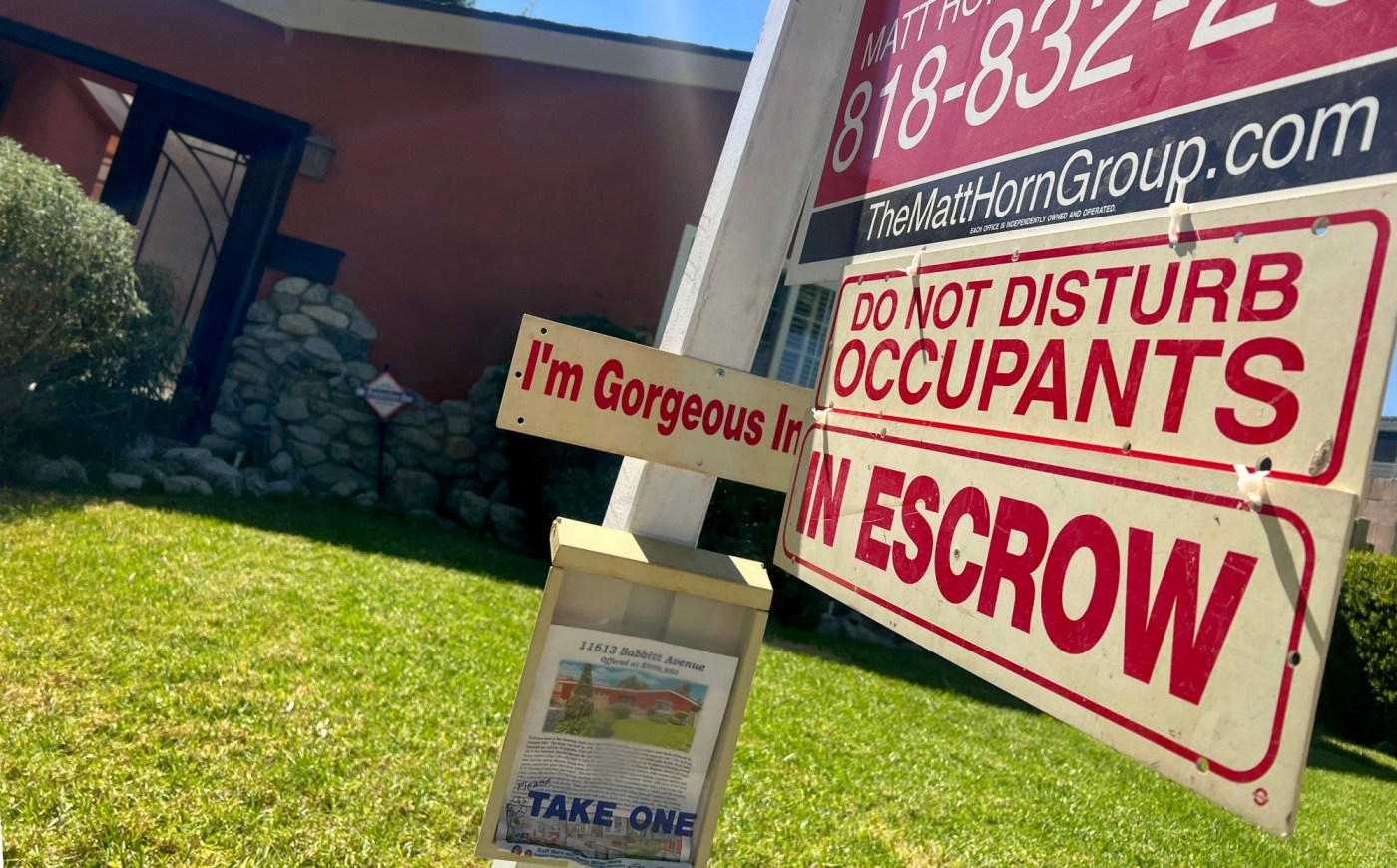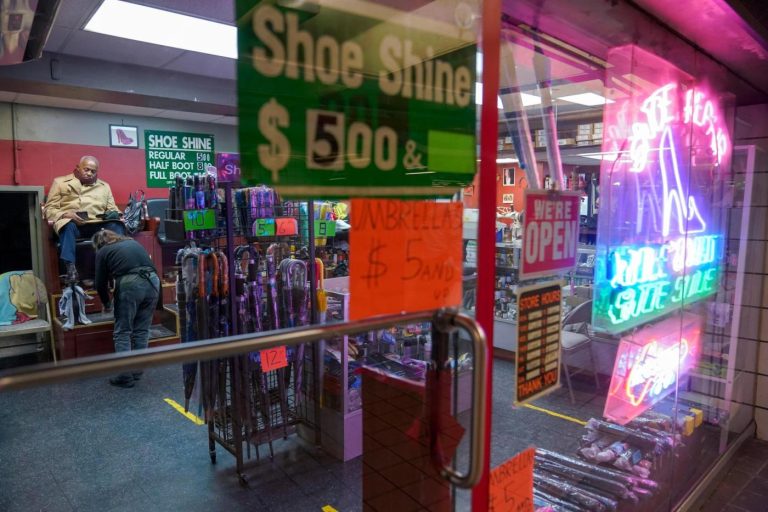Starting on Aug. 13, most Southern California home shoppers will need to sign contracts with agents to view properties for sale, binding them to paying their own commissions if they can’t get a seller to cover it.
And home sellers will be banned from advertising how much they’re willing to pay buyers’ agents in a multiple listing service, or MLS.
Those are the two most clear-cut changes happening under a nationwide real estate settlement.
RELATED: Confusion reigns on eve of real estate commission changes
Agents and consumers say, however, there still are many questions about how the nitty-gritty details of the settlement will apply in the future.
How will buyer’s agents get paid? Will the cost of buying a home — already devastatingly unaffordable — go up even more? Do you have to sign something to see an open house? What’s in the new agreement home shoppers must sign?
Some of the following questions come from our readers and some from our own newsroom.
The answers are based interviews and published responses from the national and California Realtor associations.
Q: What is the NAR settlement?
A: A proposed deal will resolve a $1.8 billion class-action verdict against the National Association of Realtors.
The terms of the deal apply nationwide and affect every homebuyer and seller who works with a licensed real estate broker who is a “participant” in an MLS that’s part of the settlement.
A home for sale in Porter Ranch, CA. on Wednesday, July 31, 20224. (Photo by Dean Musgrove, Los Angeles Daily News/SCNG)
Q: How did the settlement come about?
A: Home sellers filed several class-action lawsuits seeking to end rules that required seller agents to post “offers of compensation” in the MLS, spelling out how much commission the seller would pay a buyer’s agent. The lawsuits maintained the practice violated antitrust laws and kept U.S. commission rates artificially high.
While Realtors maintain commissions have always been negotiable, the average rate has remained in the 5%-6% range for years (or $38,000 to $46,000 for a median-priced Southern California home).
Q: How will things change under the settlement?
A: Two key changes are required.
NAR will ban “offers of compensation” to buyer’s agents in an MLS.
Such offers still can be made by other means, just not in the MLS. For example, real estate companies can (and likely will) post them on their websites, social media sites and in their marketing materials.
Second, all home buyers working with a licensed MLS member must sign a contract before that agent can begin showing them homes.
Those buyer-representation agreements would bind the buyer to paying their own broker’s fees, although they still could ask sellers to pay them during purchase negotiations.
The net effect of those two changes could evolve over time.
Q: How will it really work? How will buyer’s agents get paid?
A: Technically, buyer’s will be responsible for paying their own commissions, and sellers will be responsible for paying theirs.
But buyers can (and likely will) request in their purchase offers that sellers pay the buyer’s commissions, agents say.
“The residential purchase agreement can be used to negotiate compensation from the seller to the buyer’s broker,” a Q&A from the California Association of Realtors’ legal team said. “The maximum amount that can be requested from the seller is the amount that buyer agreed to pay the buyer’s broker in the Buyer Representation and Broker Compensation Agreement.”
If a seller declines to pay the full amount specified in the buyer’s contract, the buyer will have to pay the balance — or consider buying a different home.
Agents already are urging sellers to pay “concessions” to cover buyers’ commissions, saying they’re needed if home shoppers are to consider their homes.
Q: When do these changes take effect?
A: A federal court hearing is scheduled on Nov. 26 for final approval.
But the two key practice changes must take effect by Aug. 17. And even earlier than that in Southern California.
The Big Bear MLS implemented changes on July 25. The new procedures will start Aug. 6 at the California Desert Association of Realtors MLS and on Aug. 7 at the Greater Antelope Valley Association of Realtors MLS.
The California Regional MLS, the nation’s largest listing service covering most of Southern California, will implement the new rules Aug 13.
Q: If I’m already working with an agent, will I have to sign a new agreement after Aug. 17?
A: Yes.
Buyer’s will need to sign a contract with agents they’re working with, and sellers may need to amend their listing agreement to make sure it complies with the settlement.
Q: How is the new payment system structured (i.e., flat-fee, hourly)?
A: Many new forms of compensation could evolve.
In addition to the traditional practice of basing commissions on a home’s sale price, other types of compensation could include flat fee payments or an à la carte menu covering services such as home tours, purchase offers, negotiations and so forth.
Q: Does the settlement mean the “standard 6%” commission rate is gone?
A: News reports flourished in the wake of the settlement announcement, predicting “the 6% commission is no more.”
Consumer advocates believe rates will fall once buyers start negotiating commissions directly with their agents.
However, nowhere in the 107-page settlement does it specify any commission rates.
Q: Do I have to sign something to attend an open house or tour a new development’s model homes? Do I need to sign paperwork before I contact the agent for a home listed in the MLS?
A: Probably.
Both NAR and CAR say in their Q&As that you don’t. The listing agent is working for the seller in these instances and no agreement is required, they say.
But unrepresented buyers should expect to sign something when showing up at an open house, several local agents said.
CAR has created an Open House and Non-Agency form for agents to use as “a risk-management tool.”
The form “makes it clear that the listing agent is solely working for the seller, and all communications are for the seller’s benefit,” CAR’s legal team said in an email.
“It’s not going to be like dress shopping anymore,” said Brentwood agent Anne Russell, president of the Greater Los Angeles Realtor Association.
“But (buyers) have a choice,” she added. “They can either sign a buyer rep agreement for that one particular property with the person who happens to be hosting that open house, … or the buyer also has the option to sign a piece of paper that says, ‘I’m unrepresented. I’m just looking at the house.’ ”
Q: If I sign a buyer’s representation agreement with my agent, will other agents from his or her office also represent me?
A: While buyers and sellers may be working with a particular “sales” agent, their agreements are actually with that agent’s boss, the office’s broker. So they could end up working with other sales agents on that broker’s staff.
But most brokerages grant sales agents the right to represent a particular client.
Q: Do I have to use forms and contracts prepared by the California Association of Realtors?
A: No. Some real estate companies are drafting their own forms.
Q: Is there an open source buyer’s representation agreement?
A: CAR recently released an updated version of its buyer’s representation agreement to its members. Other brokerages are drafting their own versions. In May, Zillow released a no-fee, one-week “touring agreement” that buyers can use for visiting a home they find on the internet.
In addition, the Consumer Federation of America released a tip sheet for buyers, including consumer-friendly terms they should look for in an agreement. The federation also praised eXp’s buyer representation agreement, calling it understandable and fairer to buyers.
Q: Do I have to use a Realtor or a real estate agent to make an offer on a home?
A: No.
The FSBO — for sale by owner — long has been a fixture of the real estate scene. And websites like Zillow, Redfin and realtor.com make it possible for home shoppers to see what’s on the market without an agent.
Related Articles
Oakland A’s agree to sell Coliseum share to Black-led development group
Nuns sell Bay Area retreat center for $11.5 million
Over half of Bay Area homes take more than 30 days to sell
Confusion reigns on eve of real estate commission changes
San Jose office building lands artificial intelligence tech company
But real estate professionals strongly advise against taking on the complexities of a real estate purchase without professional advice.
“This is going to be, for most people, the most expensive purchase they ever make in their entire life. They would be foolish to shortchange themselves by looking for the cheap solution,” Russell said.
“We really become valuable when they say this is the house I want. Now we start negotiating,” Russell added. “We as agents help guide them through all of those inspections. We take them through the 97,000 pieces of paper they have to sign. … The difference between getting that kind of support and representation and trying to do it on your own could cost you well more.”
Southern California News Group business columnist Jonathan Lansner contributed to this report.












